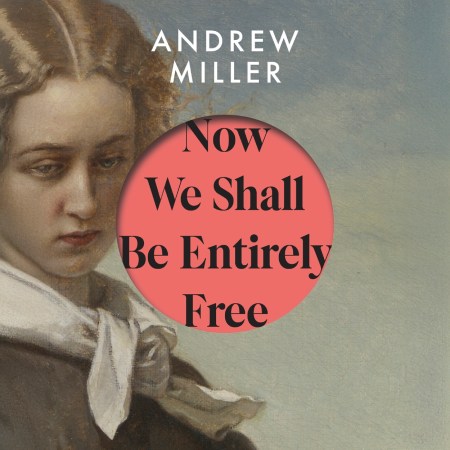By the Costa Award-winning author of PURE, a stunning historical novel with the grip of a thriller, written in richly evocative, luminous prose.
One rain-swept February night in 1809, an unconscious man is carried into a house in Somerset. He is Captain John Lacroix, home from Britain’s disastrous campaign against Napoleon’s forces in Spain.
Gradually Lacroix recovers his health, but not his peace of mind – he cannot talk about the war or face the memory of what happened in a village on the gruelling retreat to Corunna. After the command comes to return to his regiment, he sets out instead for the Hebrides, with the vague intent of reviving his musical interests and collecting local folksongs.
Lacroix sails north incognito, unaware that he has far worse to fear than being dragged back to the army: a vicious English corporal and a Spanish officer are on his trail, with orders to kill. The haven he finds on a remote island with a family of free-thinkers and the sister he falls for are not safe, at all.
(P)2018 Hodder & Stoughton Ltd
One rain-swept February night in 1809, an unconscious man is carried into a house in Somerset. He is Captain John Lacroix, home from Britain’s disastrous campaign against Napoleon’s forces in Spain.
Gradually Lacroix recovers his health, but not his peace of mind – he cannot talk about the war or face the memory of what happened in a village on the gruelling retreat to Corunna. After the command comes to return to his regiment, he sets out instead for the Hebrides, with the vague intent of reviving his musical interests and collecting local folksongs.
Lacroix sails north incognito, unaware that he has far worse to fear than being dragged back to the army: a vicious English corporal and a Spanish officer are on his trail, with orders to kill. The haven he finds on a remote island with a family of free-thinkers and the sister he falls for are not safe, at all.
(P)2018 Hodder & Stoughton Ltd
Newsletter Signup
By clicking ‘Sign Up,’ I acknowledge that I have read and agree to Hachette Book Group’s Privacy Policy and Terms of Use
Reviews
Andrew Miller can spin a ripping yarn with the skill and assurance of a master . . . He fills his novel with vividly etched characters and has a way with words that delights, surprises and enthrals. There is never a dull sentence or commonplace description
Miller recreates the past so vividly that reading the novel is never less than a fully immersive experience . . . particularly enjoyable and satisfying
Extraordinary; his writing seems to discover, or perhaps creates, additional dimensions to the world, and in the reader
In his luminous prose, Costa Prize winner Andrew Miller conjures three very different men, but their experiences have all been traumatising. Manhunt and pilgrimage, the tale unfolds into a gripping and, ultimately, surprising exploration of the inner battleground
Excellent . . . a novel of delicately shifting moods, a pastoral comedy and passionate romance story alternating with a blackly menacing thriller. It is also a book of ideas: about male violence, the impact of war and the price of freedom
A beautifully observed historical thriller . . . With writing that's elegiac and enthralling, this is a chase story with a wry edge and a romantic heart
Since the publication in 1997 of his first novel . . . his books have revealed a powerful imagination at work, and one that is also rooted in the precisely yet poetically described realities of daily life . . . In his new novel, he succeeds in creating an involving, suspenseful drama and a moving portrait of a man in search of redemption from the violence of his past
Miller's beautiful sentences are a joy to read and his engrossing novel, teeming with vivid historical detail, is as suspenseful as any thriller
A novel that would not feel out of place in the collected work of Robert Louis Stevenson, Walter Scott or, indeed, alongside William Golding's To the Ends of the Earth trilogy. ...The joy of reading an Andrew Miller novel is his obvious passion for story and sensual language, and his ability to interweave the two seamlessly. The former is an often-forgotten art form in the contemporary novel, which often seeks to impress rather than entertain, but the latter is what makes him one of the most impressive novelists at work today.
The tension is so finely balanced between hunter and hunted that the alternating chapters ultimately form one beautifully integrated whole, whilst the historical setting is perfectly realised . . . a magnificent novel
The plot grips and surprises. Miller's prose remains poetic and taut with an eye for the telling detail . . . he excels at creating characters who are defined, not limited, by a specific time and place, not just Lacroix, Calley and Medina but the minor players too. Historical or otherwise, this is fiction - storytelling - at its best
Both a ripping yarn and a skilful mediation on absence . . . The pacing of his story is excellent; his style is crisp; his apprehension of pain is arresting; and his ability to show people trembling at the edge of unreason is compelling
Enthralling . . . Miller paints a richly detailed portrait of a society in some ways familiar, in others impossibly strange
This exceptional novel is hypnotically immersive, as though the reader has been genuinely transported to an era when time moved more slowly and life was more dense and extraordinarily vivid
The sort of novel I always long for and rarely find. Anything Andrew Miller writes, I will read, and Now We Shall Be Entirely Free is an absolute masterclass: observant, generous, beautiful prose, with a thrillingly plotted tale at its heart. Proof if any were needed that truly literary fiction can make for compulsive, suspenseful and joyous reading
A profound exploration of culpability, written in prose that comes singing off the page . . . a compelling read and an important literary achievement
Brilliant . . . The narrative is framed by beautiful writing and driven by guilt at what men are driven to in extremis. Spectacular
I much enjoyed Now We Shall Be Entirely Free, in which Andrew Miller returned to more orthodox historical fiction after 2015's The Crossing and triumphantly proved there's plenty of life in the old form yet
Scary, mysterious and thoughtful - the world of Jane Austen bespattered by mud, atrocity and driving rain
A high grade cat-and-mouse manhunt that covers the length of Britain during the Napoleonic Wars - a sort of The 39 Steps with added malice . . . pitch-perfect
By the end of the opening sentence of Andrew Miller's new novel, we're already knee-deep in fictional territory he has made his own . . . Miller has an extraordinary gift for conjuring actuality from the past
It successfully combines elements of old-fashioned adventure story with a moving study of a man in search of personal redemption
A layered, riveting novel from a skilled storyteller
He is a very stylish, almost painterly writer, and he has Hilary Mantel's gift for historical reconstruction, for describing the past without making it seem like a wax museum. In some of his best books - like Ingenious Pain, his first, about an 18th-century doctor, and the more recent Pure, about an engineer in pre-revolutionary France trying to clean up an ancient cemetery - he brings off the Mantel trick of plunging you so deeply into the past that before long you take it completely for granted . . . A subtheme of this novel, where one of the main characters can't see and the other can't hear, is unknowability, how hard it is to make sense of the world . . . In its formal slipperiness, first one kind of book, then another, Now We Shall Be Entirely Free seems to be making the same point: that things are never quite what you expect, and history is altogether stranger than most accounts suggest. What makes Miller's own account so riveting is its alertness to wonder and unpredictability.
A propulsive, beautifully written investigation into atrocity, guilt and new beginnings
The joy of reading an Andrew Miller novel is his obvious passion for story and sensual language, and his ability to interweave the two seamlessly. The former is an often-forgotten art form in the contemporary novel, which often seeks to impress rather than entertain, but the latter is what makes him one of the most impressive novelists at work today
He is a very stylish, almost painterly writer, and he has Hilary Mantel's gift for historical reconstruction, for describing the past without making it seem like a wax museum . . . A subtheme of this novel, where one of the main characters can't see and the other can't hear, is unknowability, how hard it is to make sense of the world . . . things are never quite what you expect, and history is altogether stranger than most accounts suggest. What makes Miller's own account so riveting is its alertness to wonder and unpredictability
Miller strikes an impressive balance between adventure and atmosphere

